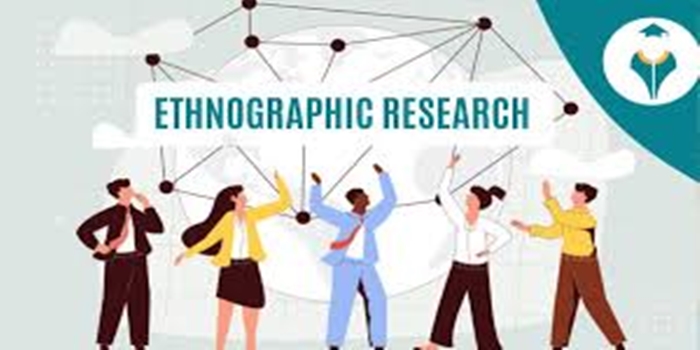In this article, we explained the meaning of ethnographic research, the features, we also talked about the examples and benefits.
Definition
Ethnographic research is a qualitative research method where researchers immerse themselves in a community or organization to understand its culture, social dynamics, and interactions. It’s a systematic and detailed study of human cultures and behaviors, often involving extended observation and interaction with participants.
Features of Ethnographic Research:
Naturalistic Setting:
Research is conducted in the natural environment of the subjects, rather than a controlled lab setting.
Close Interaction:
Researchers engage in close, face-to-face interactions with participants to gain a deeper understanding of their perspectives.
Longitudinal Data Collection:
Ethnographic research often involves collecting data over an extended period, allowing researchers to observe trends and changes in behavior.
Qualitative Data:
Ethnographic research primarily relies on qualitative data, including observations, interviews, and analysis of artifacts and visual materials.
Inductive Approach:
Ethnographic research uses an inductive approach to data analysis, where themes and patterns are identified from the data rather than testing pre-existing hypotheses.
Small Sample Size:
Ethnographic research often focuses on a small number of cases, but in great depth.
Contextual Understanding:
Ethnographic research emphasizes understanding human behavior and beliefs within their socio-political and historical context.
Cultural Lens:
Culture is used as a lens to interpret findings and understand the meanings and functions of human actions.
Holistic Approach:
Ethnographic research often takes a holistic approach, considering various aspects of a culture or group, including its history, environment, and social structures.
Multiple Data Sources:
Ethnographers use a variety of data collection methods, including participant observation, interviews, and archival research.
Ethical Considerations:
Researchers must be mindful of ethical considerations, such as privacy and confidentiality, when conducting ethnographic research.
Examples of Ethnographic Research:
Cultural Rituals:
Studying the cultural rituals and practices of a specific community, such as examining the daily life of a remote village or tribe.
Workplace Dynamics:
Investigating the social dynamics and interactions within a workplace, such as observing interactions between employees or understanding the work culture of a company.
Consumer Behavior:
Observing how consumers interact with products or services in their natural environment, like studying how people use products in their daily lives or how they shop in a supermarket.
Social Groups:
Studying the social dynamics and interactions within a specific group, such as a group of motorcycle riders, football fans, or call center workers.
Educational Settings:
Examining the social interactions and learning processes in an educational setting, such as a school classroom or a university lecture hall.
Medical Settings:
Investigating the experiences of patients or healthcare professionals in a hospital, such as studying the lives of nurses in a trauma hospital or the psychological effects of working late-night shifts.
Online Communities:
Studying the online behaviors and interactions of a specific online group, such as a forum or social media community.
The Benefits of Ethnographic Research:
Direct Access to Culture:
Ethnographers can immerse themselves in the culture they are studying, allowing them to visualize it, experience it, and ask questions as they observe.
Authentic Experiences:
By being present in the cultural setting, researchers can gain a more authentic understanding of the group’s behaviors and interactions.
Holistic View:
Ethnographic research encourages a holistic perspective, viewing all aspects of a culture as interconnected and influencing each other.
Flexibility in Data Collection:
Researchers can adapt their methods as needed and explore emerging areas of interest during the study.
Unveiling Hidden Insights:
Ethnography can reveal experiences, knowledge, and perspectives that other methods might miss, especially when studying marginalized groups.
Understanding Social Context:
It allows researchers to understand the cultural and social context in which people live, work, and interact, providing insights into their decision-making processes.
Identifying Unintended Consequences:
Ethnographic research can help uncover unintended consequences of changes or interventions made within a community.
Developing Contextual Understanding:
It helps researchers understand consumer behavior and customer needs within a broader context, including their culture, social interactions, and surroundings.
Exploring New Research Directions:
Ethnography is particularly useful for exploring new areas of research and identifying previously unknown issues.
Conclusion
Ethnographic research is a qualitative explore method where researchers immerse themselves in a community or organization to understand its culture, social changing aspects, and interactions. It’s a systematic and detailed study of human cultures and behaviors, often involving extended observation and interaction with participants.


